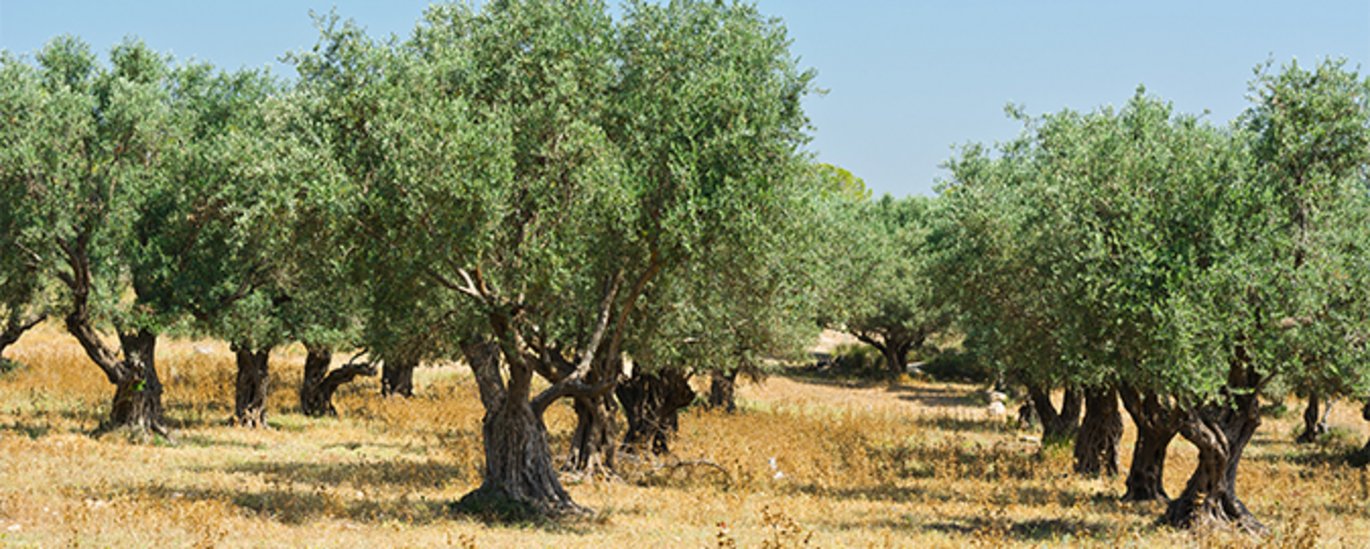New project will make the olive tree production more climate-friendly
The olive industry is facing both economic and ecological problems driven by intensive agriculture and climate change. A new international project seeks to transform the industry preparing it for the changes to come.

The production of olive trees is of enormous ecological and economic importance for most Mediterranean countries. But the last decades the olive farming industry has undergone an intensification process that has carried along some radical changes leading to the first environmental risk caused by intensification: excessive use of water resources and soil erosion.
The current forecasts of climate change will most likely worsen this picture. Both from an ecological and economic point of view this is a problem which needs to be solved.
That is exactly what the scientific project Olive-MIRACLE, funded within the frame of FACCE SURPLUS, aims to do. The project examines the possibilities of establishing a more sustainable and climate friendly olive tree production in the Mediterranean countries, by exploring new opportunities both under current climate conditions and future climate conditions.
An all-around approach
One of the project’s main tasks is to investigate yield performances under different climate scenarios, such as warmer temperatures and higher levels of CO2.
- The production of olive trees is of utmost importance in Europe and approximately 75 percent of the world’s production of olive oil comes from the EU. We need to prepare the production for new climatic conditions ensuring economic and ecologic sustainability, Dr. Marco Moriondo, who is the coordinator on the project, says.
Olive-MIRACLE will also evaluate mitigation/adaptation strategies by evaluating different agro-management factors. Another task is to investigate possibilities for sustainable cultivation of olive trees making it both profitable and environmentally friendly. The analysis will be based on a consistent set of data layers, including weather, soils, and current agro-management information.
Finally the project wants to support decision-making through a participatory approach with stakeholders aiming to identify sustainable and economic viable olive tree management practices. Furthermore, the project works on harmonization between farmers ensuring that best-practices are spread out.
- The project takes a holistic approach to a very complex issue. The hope is to be able to help the individual farmer on a regional level as well as the whole industry per se, Dr. Marco Moriondo explains.
Partners in the 3-year Olive-MIRACLE-project include National Research Council of Italy, Council for Agricultural Research and Economics from Italy, the Agricultural Research Institute of Cyprus and Universidad de Cordoba from Spain. The project has been granted 414.000 € from the FACCE SURPLUS ERA-NET cofound.
FACCE SURPLUS
FACCE SURPLUS is an ERA-NET under the Cofund scheme of Horizon 2020 of the European Union. FACCE SURPLUS calls for collaboration among 15 countries and the EU for transnational research projects on the thematic area of sustainable and resilient agriculture. Further joint activities that go beyond this co-funded call are planned, in order to contribute to the establishment of a renewable bioeconomy in the ERA.
Further information
Dr. Marco Moriondo
National Research Council, Italy
Email: marco.moriondo@cnr.it
Tel.: 0039 055 2755742
